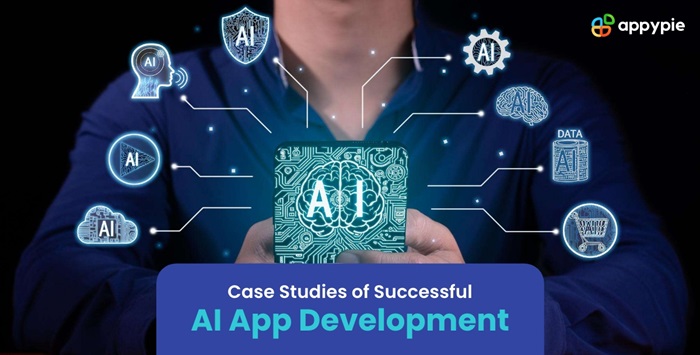What is an AI Heritage Time Machine?
An AI Heritage Time Machine is a sophisticated system that uses artificial intelligence to recreate and study historical environments and artifacts. These systems can analyze vast amounts of historical data, reconstruct lost or damaged heritage sites, and provide immersive visualizations of different historical periods.
Key Features
- Data analysis: Utilizing AI to process and interpret large datasets from archaeological and historical records.
- 3D reconstruction: Creating detailed 3D models of historical sites and artifacts.
- Immersive experiences: Providing virtual reality (VR) or augmented reality (AR) experiences that allow users to explore reconstructed environments.
- Predictive modeling: Using AI to predict the historical significance and future preservation needs of sites and artifacts.
The Technology Behind AI Heritage Time Machines

AI Heritage Time Machines rely on a combination of advanced technologies to achieve their goals. These technologies include machine learning, computer vision, natural language processing, and VR/AR.
Machine Learning
- Data processing: Machine learning algorithms analyze vast amounts of historical data to identify patterns and trends.
- Predictive analytics: AI models predict the condition and significance of heritage sites based on historical and environmental data.
Computer Vision
- Image recognition: AI systems recognize and analyze images of artifacts and sites to identify features and damage.
- 3D modeling: Computer vision algorithms convert 2D images into detailed 3D models.
Natural Language Processing (NLP)
- Historical texts: NLP techniques analyze and interpret historical documents and texts.
- Contextual understanding: AI systems extract context and meanings from historical records to enhance reconstructions.
Virtual Reality (VR) and Augmented Reality (AR)
- Immersive experiences: VR and AR provide interactive and immersive experiences, allowing users to explore reconstructed environments.
- Educational tools: These technologies serve as powerful educational tools, bringing history to life.
Applications of AI Heritage Time Machines
The applications of AI Heritage Time Machines are diverse and far-reaching, impacting various fields such as archaeology, education, tourism, and cultural preservation.
Archaeology
- Site reconstruction: AI reconstructs damaged or incomplete archaeological sites, providing a clearer picture of historical environments.
- Artifact analysis: AI analyzes artifacts to identify their origin, use, and significance.
- Excavation planning: AI models help plan and optimize excavation strategies.
Education
- Interactive learning: AI-powered reconstructions provide interactive and engaging learning experiences for students.
- Virtual field trips: VR allows students to explore historical sites and artifacts from their classrooms.
Tourism
- Virtual tours: Tourists can take virtual tours of historical sites and museums, enhancing their experience.
- Enhanced exhibits: Museums use AI to create interactive exhibits that provide deeper insights into historical artifacts and sites.
Cultural Preservation
- Digital archiving: AI helps digitize and preserve cultural artifacts and records.
- Condition monitoring: AI systems monitor the condition of heritage sites and artifacts, predicting and preventing deterioration.
Benefits of AI Heritage Time Machines
AI Heritage Time Machines offer numerous benefits, from preserving cultural heritage to enhancing education and tourism.
Preservation of Cultural Heritage
- Reconstruction of lost sites: AI reconstructs sites that have been lost to time, war, or natural disasters.
- Digital preservation: AI creates digital records of artifacts and sites, ensuring their preservation for future generations.
Enhanced Learning Experiences
- Immersive education: VR and AR provide immersive learning experiences, making history more accessible and engaging.
- Interactive content: AI creates interactive content that enhances understanding and retention.
Tourism and Public Engagement
- Virtual tourism: AI enables virtual tourism, allowing people to explore historical sites from anywhere in the world.
- Engaging exhibits: AI-powered exhibits attract and engage visitors, boosting interest in cultural heritage.
Research and Analysis
- Data-driven insights: AI provides data-driven insights into historical and cultural trends.
- Efficient analysis: AI speeds up the analysis of large datasets, making research more efficient.
Challenges and Ethical Considerations
While AI Heritage Time Machines offer many benefits, they also pose several challenges and ethical considerations that must be addressed.
Data Quality and Availability
- Incomplete records: Many historical records are incomplete or damaged, making accurate reconstruction challenging.
- Data bias: Historical data may be biased or inaccurate, affecting the reliability of AI models.
Ethical Considerations
- Cultural sensitivity: Reconstructing and displaying cultural heritage must be done with sensitivity to the cultures and communities involved.
- Privacy concerns: The digitization of historical records raises privacy concerns, especially with regard to indigenous and marginalized communities.
Technological Limitations
- Computational power: Creating detailed 3D models and immersive experiences requires significant computational resources.
- Accuracy of AI models: Ensuring the accuracy and reliability of AI models is critical for credible reconstructions.
Case Studies: Successful Implementations of AI Heritage Time Machines

Several successful implementations of AI Heritage Time Machines demonstrate their potential and impact.
The Florence Time Machine
- Project overview: An ambitious project to digitize and reconstruct the history of Florence, Italy, using AI.
- Key achievements: Created detailed 3D models of historical sites, analyzed historical texts, and provided immersive VR experiences.
- Impact: Enhanced understanding of Florence’s history and boosted tourism and educational engagement.
The St. Petersburg Time Machine
- Project overview: A project to reconstruct and study the cultural heritage of St. Petersburg, Russia.
- Key achievements: Digitized historical records, created 3D models of architectural landmarks, and provided AR experiences.
- Impact: Preserved and promoted St. Petersburg’s cultural heritage, attracting researchers and tourists.
The Maya Heritage Time Machine
- Project overview: An initiative to reconstruct and analyze Maya civilization sites in Central America using AI.
- Key achievements: Analyzed archaeological data, created detailed 3D models of Maya sites, and provided interactive educational tools.
- Impact: Enhanced understanding of Maya civilization and supported archaeological research and education.
The Future of AI Heritage Time Machines
The future of AI Heritage Time Machines looks promising, with advancements in technology and increased awareness of cultural preservation driving further innovation.
Technological Advancements
- Improved AI algorithms: Advancements in AI will lead to more accurate and detailed reconstructions.
- Integration with IoT: The Internet of Things (IoT) will enable real-time monitoring and data collection from heritage sites.
- Enhanced VR/AR: Continued development of VR and AR technologies will provide even more immersive experiences.
Increased Accessibility
- Wider adoption: As technology becomes more accessible, AI Heritage Time Machines will be adopted by more institutions and communities.
- Open access: Efforts to make digital heritage records and reconstructions openly accessible will increase public engagement and research opportunities.
Collaborative Efforts
- Global collaboration: International collaboration will enhance the sharing of data, technology, and expertise.
- Community involvement: Involving local communities in the digitization and preservation of their heritage will ensure cultural sensitivity and relevance.
The AI Heritage Time Machine represents a remarkable fusion of technology and history, offering new ways to explore, understand, and preserve our cultural heritage. From reconstructing lost sites to providing immersive educational experiences, the potential applications and benefits are vast. As technology continues to advance, AI Heritage Time Machines will undoubtedly play a crucial role in preserving and promoting our shared history for future generations.

